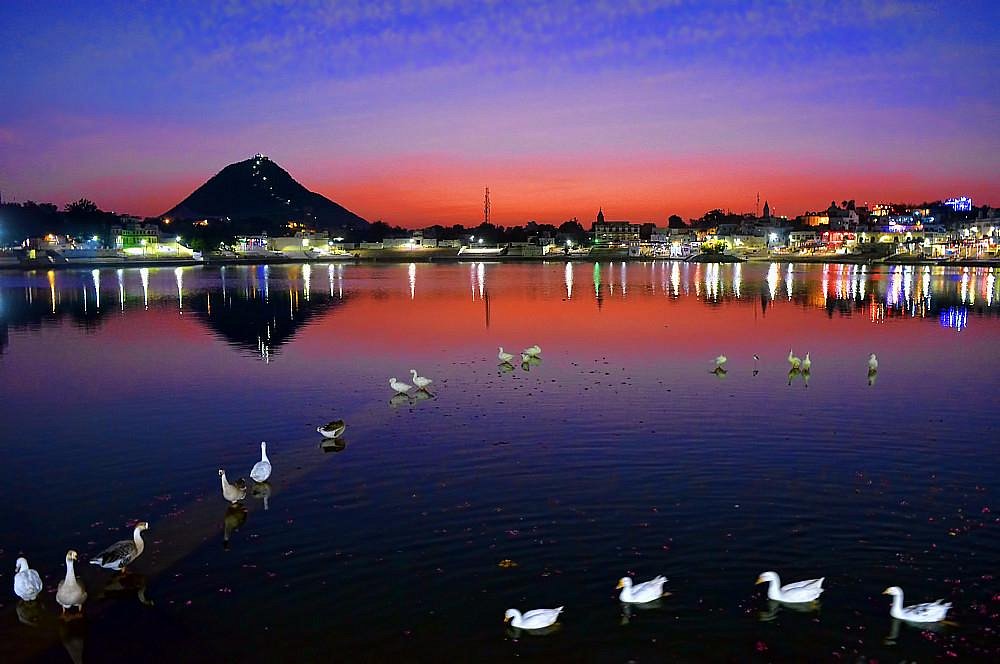

Pushkar Lake is a sacred lake located in the town of Pushkar in Rajasthan, India. It is one of the holiest spots for Hindus due to its mythological significance and thus, has been a pilgrimage site for centuries. According to Hindu scripture, the lake was created when a lotus petal fell from Lord Brahma's hand, who is considered the creator of the universe.
The history of tourism in Pushkar can be traced back over thousands of years when it became a key destination for Hindu pilgrims. It is believed that a dip in the holy waters of Pushkar Lake can cleanse the soul and cure all sins, making it an important religious site for Hindus. The lake has 52 ghats where pilgrims conduct their sacred ablutions and prayers. The annual Pushkar Fair, also known as Pushkar Camel Fair or Mela, which occurs on the banks of the lake, has been a major draw for both domestic and international tourists for hundreds of years.
During British rule in India, Pushkar Lake and the surrounding town of Pushkar began to gain popularity among European travelers who were fascinated by the cultural and spiritual significance of the area. English travelogues and literature from the colonial period often mention Pushkar, suggesting it was part of the broader Rajasthan tourism circuit frequented by the British and other Western travelers seeking to explore the exotic and spiritual East.
In the 20th century, as travel became more accessible, Pushkar saw a surge in the number of visitors from around the globe. The establishment of better road connectivity, the advent of modern tour operations, and the Indian government’s efforts to promote tourism in Rajasthan contributed to the growth of Pushkar as a major tourist destination.
More recently, travel trends in Pushkar have seen an evolution from primarily pilgrimage tourism to a broader cultural and experiential travel destination. Tourists are now seeking immersive experiences, which include staying in heritage properties, participating in local festivals, going on desert safaris, and engaging with the local community to understand their traditions and crafts.
Eco-tourism and sustainable practices are also gaining momentum in Pushkar. There is an increasing number of accommodations and tour operators adopting environmentally friendly practices, recognizing the importance of preserving the sacredness and environment of the lake and its surroundings for future generations.
Pushkar Lake continues to retain its charm, with its tranquil waters, surrounding desert landscape, and the colorful town of Pushkar creating a unique blend of spirituality, culture, and natural beauty. This blend is the basis of its enduring appeal to tourists both from India and around the world. Whether for the holy significance, the cultural vibrancy, or simply the peace and scenic beauty, Pushkar Lake remains an iconic destination within India's rich tapestry of travel destinations.